- Home
- Edith Wharton
The Angel at the Grave Page 2
The Angel at the Grave Read online
Page 2
She had still to ask herself why. If the decay had been a natural process, was it not the very pledge of renewal? It was easier to find such arguments than to be convinced by them. Again and again she tried to drug her solicitude with analogies; but at last she saw that such expedients were but the expression of a growing incredulity. The best way of proving her faith in her grandfather was not to be afraid of his critics. She had no notion where these shadowy antagonists lurked; for she had never heard of the great man's doctrine being directly combated. Oblique assaults there must have been, however, Parthian shots at the giant that none dared face; and she thirsted to close with such assailants. The difficulty was to find them. She began by re-reading the Works; thence she passed to the writers of the same school, those whose rhetoric bloomed perennial in First Read- ers from which her grandfather's prose had long since faded. Amid that clamor of far-off enthusiasms she detected no controversial note. The little knot of Olympians held their views in common with an early-Christian promiscuity. They were continually proclaiming their admiration for each other, the public joining as chorus in this guileless antiphon of praise; and she discovered no traitor in their midst.
What then had happened? Was it simply that the main current of thought had set another way? Then why did the others survive? Why were they still marked down as tributaries to the philosophic stream? This question carried her still farther afield, and she pressed on with the passion of a champion whose reluctance to know the worst might be construed into a doubt of his cause. At length--slowly but inevitably--an explanation shaped itself. Death had overtaken the doctrines about which her grandfather had draped his cloudy rhetoric. They had disintegrated and been reabsorbed, adding their little pile to the dust drifted about the mute lips of the Sphinx. The great man's contemporaries had survived not by reason of what they taught, but of what they were; and he, who had been the mere mask through which they mouthed their lesson, the instrument on which their tune was played, lay buried deep among the obsolete tools of thought.
The discovery came to Paulina suddenly. She looked up one evening from her reading, and it stood before her like a ghost. It had entered her life with stealthy steps, creeping close before she was aware of it. She sat in the library, among the carefully tended books and portraits; and it seemed to her that she had been walled alive into a tomb hung with the effigies of dead ideas. She felt a desperate longing to escape into the outer air, where people toiled and loved, and living sympathies went hand in hand. It was the sense of wasted labor that oppressed her; of two lives consumed in that ruthless process that uses generations of effort to built [sic] a single cell. There was a dreary parallel between her grandfather's fruitless toil and her own unprofitable sacrifice. Each in turn had kept vigil by a corpse.
III
THE bell rang--she remembered it afterward--with a loud thrilling note. It was what they used to call the "visitor's ring"; not the tentative tinkle of a neighbor dropping in to borrow a sauce-pan or discuss parochial incidents, but a decisive summons from the outer world.
Miss Anson put down her knitting and listened. She sat upstairs now, making her rheumatism an excuse for avoiding the rooms below. Her interests had insensibly adjusted themselves to the perspective of her neighbors' lives, and she wondered--as the bell re-echoed--if it could mean that Mrs. Heminway's baby had come. Conjecture had time to ripen into certainty, and she was limping toward the closet where her cloak and bonnet hung, when her little maid fluttered in with the announcement: "A gentleman to see the house."
"The House?"
"Yes, m'm. I don't know what he means," faltered the messenger, whose memory did not embrace the period when such announcements were a daily part of the domestic routine.
Miss Anson glanced at the proffered card. The name it bore--Mr. George Corby--was unknown to her, but the blood rose to her languid cheek. "Hand me my Mechlin cap, Katy," she said, trembling a little, as she laid aside her walking-stick. She put the cap on before the mirror, with rapid unsteady touches. "Did you draw up the library blinds?" she breathlessly asked.
She had gradually built up a wall of commonplace between herself and her illusions, but at the first summons of the past filial passion swept away the frail barriers of expediency.
She walked downstairs so hurriedly that her stick clicked like a girlish heel; but in the hall she paused, wondering nervously if Katy had put a match to the fire. The autumn air was cold and she had the reproachful vision of a visitor with elderly ailments shivering by her inhospitable hearth. She thought instinctively of the stranger as a survivor of the days when such a visit was a part of the young enthusiast's itinerary.
The fire was unlit and the room forbiddingly cold; but the figure which, as Miss Anson entered, turned from a lingering scrutiny of the book-shelves, was that of a fresh-eyed sanguine youth clearly independent of any artificial caloric. She stood still a moment, feeling herself the victim of some anterior impression that made this robust presence an insubstantial thing; but the young man advanced with an air of genial assurance which rendered him at once more real and more reminiscent.
"Why this, you know," he exclaimed, "is simply immense!"
The words, which did not immediately present themselves as slang to Miss Anson's unaccustomed ear, echoed with an odd familiarity through the academic silence.
"The room, you know, I mean," he explained with a comprehensive gesture. "These jolly portraits, and the books-- that's the old gentleman himself over the mantelpiece, I suppose?-- and the elms outside, and--and the whole business. I do like a congruous background--don't you?"
His hostess was silent. No one but Hewlett Winsloe had ever spoken of her grandfather as "the old gentleman."
"It's a hundred times better than I could have hoped," her visitor continued, with a cheerful disregard of her silence. "The seclusion, the remoteness, the philosophic atmosphere--there's so little of that kind of flavor left! I should have simply hated to find that he lived over a grocery, you know. I had the deuce of a time finding out where he did live," he began again, after another glance of parenthetical enjoyment. "But finally I got on the trail through some old book on Brook Farm. I was bound I'd get the environment right before I did my article."
Miss Anson, by this time, had recovered sufficient self- possession to seat herself and assign a chair to her visitor.
"Do I understand," she asked slowly, following his rapid eye about the room, "that you intend to write an article about my grandfather?"
"That's what I'm here for," Mr. Corby genially responded; "that is, if you're willing to help me; for I can't get on without your help," he added with a confident smile.
There was another pause, during which Miss Anson noticed a fleck of dust on the faded leather of the writing-table and a fresh spot of discoloration in the right-hand upper corner of Raphael Morghen's "Parnassus."
"Then you believe in him?" she said, looking up. She could not tell what had prompted her; the words rushed out irresistibly.
"Believe in him?" Corby cried, springing to his feet. "Believe in Orestes Anson? Why, I believe he's simply the greatest--the most stupendous--the most phenomenal figure we've got!"
The color rose to Miss Anson's brow. Her heart was beating passionately. She kept her eyes fixed on the young man's face, as though it might vanish if she looked away.
"You--you mean to say this in your article?" she asked.
"Say it? Why, the facts will say it," he exulted. "The baldest kind of a statement would make it clear. When a man is as big as that he doesn't need a pedestal!"
Miss Anson sighed. "People used to say that when I was young," she murmured. "But now--"
Her visitor stared. "When you were young? But how did they know--when the thing hung fire as it did? When the whole edition was thrown back on his hands?"
"The whole edition--what edition?" It was Miss Anson's turn to stare.
"Why, of his pamphlet-- the pamphlet--the one thing that counts, that survives, that makes him what he is!
For heaven's sake," he tragically adjured her, "don't tell me there isn't a copy of it left!"
Miss Anson was trembling slightly. "I don't think I understand what you mean," she faltered, less bewildered by his vehemence than by the strange sense of coming on an unexplored region in the very heart of her dominions.
"Why, his account of the amphioxus, of course! You can't mean that his family didn't know about it--that you don't know about it? I came across it by the merest accident myself, in a letter of vindication that he wrote in 1830 to an old scientific paper; but I understood there were journals--early journals; there must be refer- ences to it somewhere in the 'twenties. He must have been at least ten or twelve years ahead of Yarrell; and he saw the whole significance of it, too--he saw where it led to. As I understand it, he actually anticipated in his pamphlet Saint Hilaire's theory of the universal type, and supported the hypothesis by describing the notochord of the amphioxus as a cartilaginous vertebral column. The specialists of the day jeered at him, of course, as the specialists in Goethe's time jeered at the plant-metamorphosis. As far as I can make out, the anatomists and zoologists were down on Dr. Anson to a man; that was why his cowardly publishers went back on their bargain. But the pamphlet must be here somewhere--he writes as though, in his first disappointment, he had destroyed the whole edition; but surely there must be at least one copy left?"
His scientific jargon was as bewildering as his slang; and there were even moments in his discourse where Miss Anson ceased to distinguish between them; but the suspense with which he continued to gaze on her acted as a challenge to her scattered thoughts.
"The amphioxus," she murmured, half-rising. "It's an animal, isn't it--a fish? Yes, I think I remember." She sank back with the inward look of one who retraces some lost line of association.
Gradually the distance cleared, the details started into life. In her researches for the biography she had patiently followed every ramification of her subject, and one of these overgrown paths now led her back to the episode in question. The great Orestes's title of "Doctor" had in fact not been merely the spontaneous tribute of a national admiration; he had actually studied medicine in his youth, and his diaries, as his granddaughter now recalled, showed that he had passed through a brief phase of anatomical ardor before his attention was diverted to super-sensual problems. It had indeed seemed to Paulina, as she scanned those early pages, that they revealed a spontaneity, a freshness of feeling somehow absent from his later lucubrations--as though this one emotion had reached him directly, the others through some interventing [sic] medium. In the excess of her commemorative zeal, she had even struggled through the unintelligible pamphlet to which a few lines in the journal had bitterly directed her. But the subject and the phraseology were alien to her, and unconnected with her conception of the great man's genius; and after a hurried perusal she had averted her thoughts from the episode as from a revelation of failure. At length she rose a little unsteadily, supporting herself against the writing-table. She looked hesitatingly about the room; then she drew a key from her old-fashioned reticule and unlocked a drawer beneath one of the book-cases. Young Corby watched her breathlessly. With a tremulous hand she turned over the dusty documents that seemed to fill the drawer. "Is this it?" she said, holding out a thin discolored volume.
He seized it with a gasp. "Oh, by George," he said, dropping into the nearest chair.
She stood observing him strangely as his eye devoured the mouldy pages.
"Is this the only copy left?" he asked at length, looking up for a moment as a thirsty man lifts his head from his glass.
"I think it must be. I found it long ago, among some old papers that my aunts were burning up after my grandmother's death. They said it was of no use--that he'd always meant to destroy the whole edition and that I ought to respect his wishes. But it was something he had written; to burn it was like shutting the door against his voice--against something he had once wished to say, and that nobody had listened to. I wanted him to feel that I was always here, ready to listen, even when others hadn't thought it worth while; and so I kept the pamphlet, meaning to carry out his wish and destroy it before my death."
Her visitor gave a groan of retrospective anguish. "And but for me--but for to-day--you would have?"
"I should have thought it my duty."
"Oh, by George--by George," he repeated, subdued afresh by the inadequacy of speech.
She continued to watch him in silence. At length he jumped up and impulsively caught her by both hands.
"He's bigger and bigger!" he almost shouted. "He simply leads the field! You'll help me go to the bottom of this, won't you? We must turn out all the papers--letters, journals, memoranda. He must have made some notes. He must have left some record of what led up to this. We must leave nothing unexplored. By Jove," he cried, looking up at her with his bright convincing smile, "do you know you're the granddaughter of a Great Man?"
Her color flickered like a girl's. "Are you--sure of him?" she whispered, as though putting him on his guard against a possible betrayal of trust.
"Sure! Sure! My dear lady--" he measured her again with his quick confident glance. "Don't you believe in him?"
She drew back with a confused murmur. "I--used to." She had left her hands in his: their pressure seemed to send a warm current to her heart. "It ruined my life!" she cried with sudden passion. He looked at her perplexedly.
"I gave up everything," she went on wildly, "to keep him alive. I sacrificed myself--others--I nursed his glory in my bosom, and it died--and left me--left me here alone." She paused and gathered her courage with a gasp. "Don't make the same mistake!" she warned him.
He shook his head, still smiling. "No danger of that! You're not alone, my dear lady. He's here with you--he's come back to you to-day. Don't you see what's happened? Don't you see that it's your love that has kept him alive? If you'd abandoned your post for an instant--let things pass into other hands--if your wonderful tenderness hadn't perpetually kept guard--this might have been-- must have been--irretrievably lost." He laid his hand on the pamphlet. "And then--then he would have been dead!"
"Oh," she said, "don't tell me too suddenly!" And she turned away and sank into a chair.
The young man stood watching her in an awed silence. For a long time she sat motionless, with her face hidden, and he thought she must be weeping.
At length he said, almost shyly: "You'll let me come back, then? You'll help me work this thing out?"
She rose calmly and held out her hand. "I'll help you," she declared.
"I'll come to-morrow, then. Can we get to work early?"
"As early as you please."
"At eight o'clock, then," he said briskly. "You'll have the papers ready?"
"I'll have everything ready." She added with a half-playful hesitancy: "And the fire shall be lit for you."
He went out with his bright nod. She walked to the window and watched his buoyant figure hastening down the elm-shaded street. When she turned back into the empty room she looked as though youth had touched her on the lips.

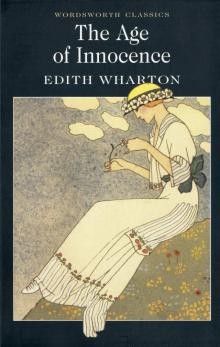 The Age of Innocence
The Age of Innocence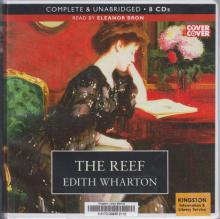 The Reef
The Reef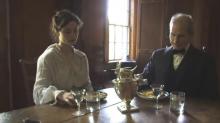 Summer
Summer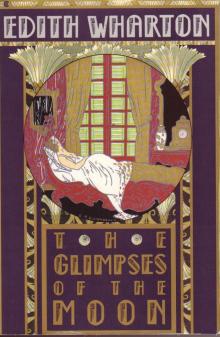 The Glimpses of the Moon
The Glimpses of the Moon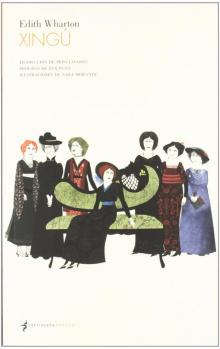 Xingu
Xingu The Fruit of the Tree
The Fruit of the Tree Fast and Loose
Fast and Loose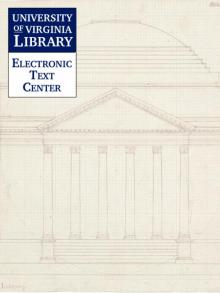 Artemis to Actaeon and Other Verse
Artemis to Actaeon and Other Verse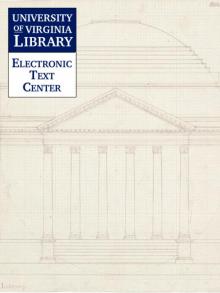 The Line of Least Resistance
The Line of Least Resistance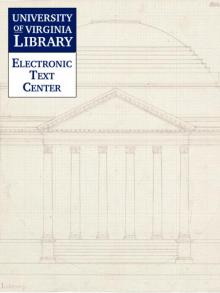 The Lamp of Psyche
The Lamp of Psyche The Reckoning
The Reckoning Afterward
Afterward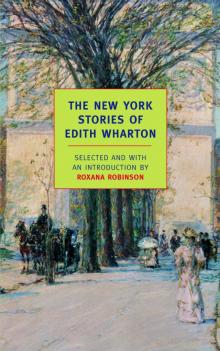 The New York Stories of Edith Wharton
The New York Stories of Edith Wharton The 2014 Halloween Horrors Megapack
The 2014 Halloween Horrors Megapack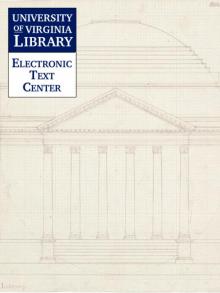 'Copy': A Dialogue
'Copy': A Dialogue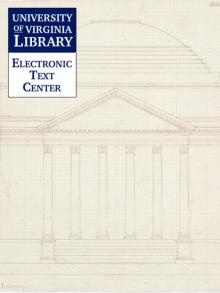 The Recovery
The Recovery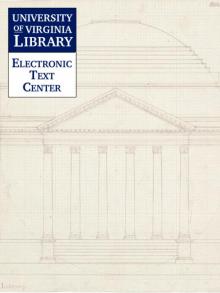 The Fulness of Life
The Fulness of Life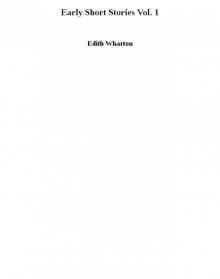 Early Short Stories Vol. 1
Early Short Stories Vol. 1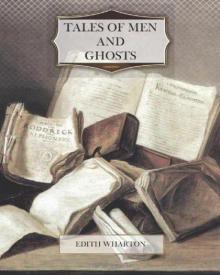 Tales of Men and Ghosts
Tales of Men and Ghosts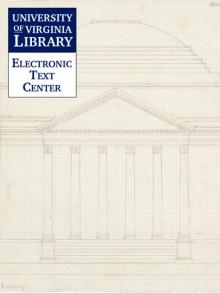 The House of the Dead Hand
The House of the Dead Hand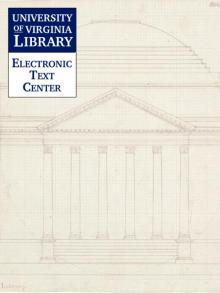 That Good May Come
That Good May Come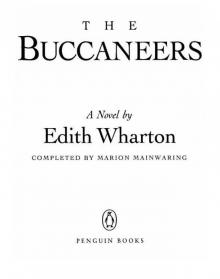 The Buccaneers
The Buccaneers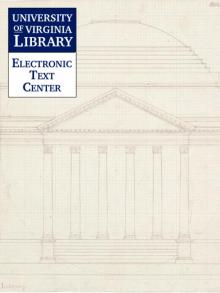 Other Times, Other Manners
Other Times, Other Manners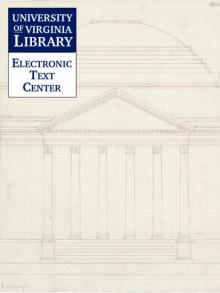 The Hermit and the Wild Woman
The Hermit and the Wild Woman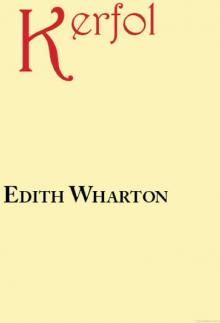 Kerfol
Kerfol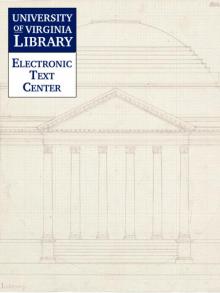 The Duchess at Prayer
The Duchess at Prayer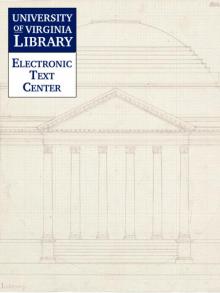 Bunner Sisters
Bunner Sisters The Choice
The Choice Madame De Treymes
Madame De Treymes Ethan Frome, Summer, Bunner Sisters
Ethan Frome, Summer, Bunner Sisters In Morocco
In Morocco The Valley of Decision
The Valley of Decision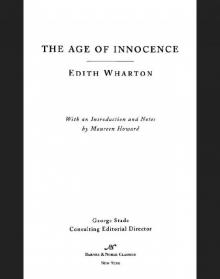 Age of Innocence (Barnes & Noble Classics Series)
Age of Innocence (Barnes & Noble Classics Series)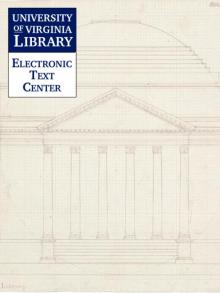 The Angel at the Grave
The Angel at the Grave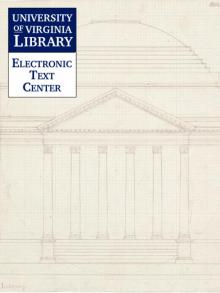 April Showers
April Showers Sanctuary
Sanctuary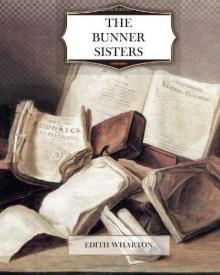 The Bunner Sisters
The Bunner Sisters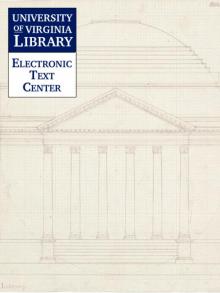 Mrs. Manstey's View
Mrs. Manstey's View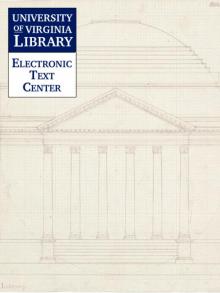 Writing a War Story
Writing a War Story The Custom of the Country
The Custom of the Country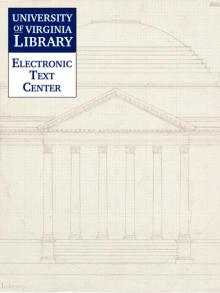 In Trust
In Trust The Triumph of the Night
The Triumph of the Night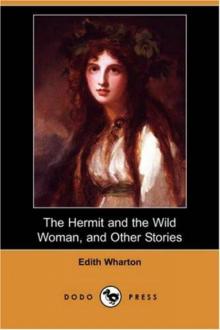 The Hermit and the Wild Woman, and Other Stories
The Hermit and the Wild Woman, and Other Stories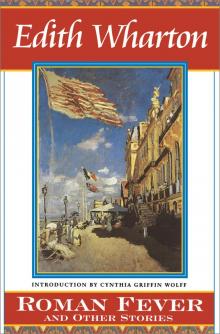 Roman Fever and Other Stories
Roman Fever and Other Stories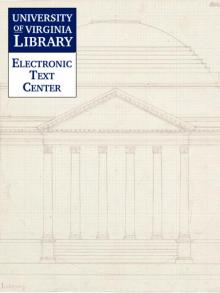 The Mission of Jane
The Mission of Jane The Descent of Man and Other Stories
The Descent of Man and Other Stories Coming Home
Coming Home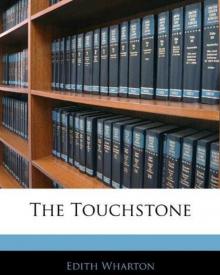 The Touchstone
The Touchstone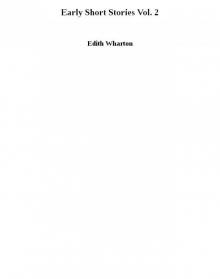 Early Short Stories Vol. 2
Early Short Stories Vol. 2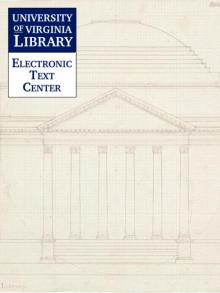 Edith Wharton's Verse, 1879-1919, from various journals.
Edith Wharton's Verse, 1879-1919, from various journals.